- Home
- Roger Zelazny
Madwand (Illustrated) Page 18
Madwand (Illustrated) Read online
Page 18
He had wondered several times since he had fought Keth whether all of the symbolic byplay was truly necessary in a magical encounter. Since it was will against will, force manipulation against force manipulation, and perhaps, personal energy against personal energy, it would seem that it might be stripped to its barest essentials and Devil take the hindmost. It occurred to him immediately that this was an untutored, Madwand way of thinking. But he was slowed whenever he tried to imitate the refinements the others had developed in the long courses of their studies, and he knew that he was handicapped when he was forced to play their games. There were obvious advantages in doing things that more subtle way, but he had no time to learn it at the moment. Therefore, he determined to attempt the alternative as he tried to move nearer.
With some trepidation, he blanked the second seeing. The fogs vanished. The room returned to normal, Ryle standing near its entrance, a faraway look in his eyes.
Pol raised his right hand, directing it toward Ryle, and willed that the other fall down, shrivel and die. The dragonmark seemed suddenly icy and he felt the power leap forth. He continued to focus his will and a steady flowing sensation moved, wavelike, down his arm.
Ryle swayed for a moment, then steadied himself. Suddenly, Pol found himself standing on a spit of land, his stance unaltered, a mighty torrent of water rushing past him at either hand. Ryle stood upon a small island downstream. Even as he watched, the nearer edge of Ryle’s islet was being eroded away and the man was forced to draw back upon it.
But Ryle raised both hands, a look of intense concentration upon his face. The movement of the water began to slow. A tremor shook the land upon which Pol stood. The water lashed about for several moments, then grew still. This did not last long, however. Shortly, it began moving again. But this time it was flowing toward Pol. He watched, fascinated, as its velocity increased and the land began to wear away before him.
He shook his head as if to clear it. Ryle had drawn him back into a symbolic situation. He dismissed the waters for a moment and bent his efforts toward reestablishing his presence in the chamber.
The river vanished. They were back in the room again. Nothing had changed. Only now Pol felt a pressure, a pronounced squeezing sensation all over his body. It was increasing by the moment.
He refocused his energies.
“Burn, melt, fall down . . . ”
The pressure vanished and Ryle staggered, as from a sudden blow. Pol maintained his own pressure now, his entire will behind it. Ryle began to sway, as if caught in a heavy wind.
Then, suddenly, there were flames between them, fanned as if by a great gale blowing in Ryle’s direction. They rose from a wide chasm which divided a rocky landscape between them.
Even as he watched, the winds died down and the flames became vertical. Then he felt the warm touch of a breeze upon his face. The tongues of fire began to bend toward him . . .
“No!” Pol cried, and the vista was swept away.
The breeze and the heat remained until he gained control of his forces once again. Then they fell, and he hurled his energies at the other with renewed vehemence.
. . . He stood upon a mountain peak, Ryle atop another. A storm was raging between them. Bolts of lightning fell upon both slopes—
“No,” he said softly, “not this time,” and he stood again in the chamber and continued the pressure.
. . . Each of them stood upon a floe of ice, tossed by a gray choppy sea—
“No.”
They were in the chamber and Ryle was glaring at him. His arm was beginning to ache, but the wavelike sensation continued to pulse through it.
. . . There was darkness all about them, and the meteor shower began—
“No.”
He maintained the focus of his concentration, ready to dismiss any new distraction. It had to be will against will.
The room began to fade and he restored it immediately.
“No.”
He smiled.
For half-a-minute he maintained his assault, and then he felt the pressure beginning to mount against him. He drew upon his reserves of determination, but it continued to build.
Even this way, he realized then, Ryle had the edge. The man had played a careful game but it had not really been necessary. He knew that he could not hold him back much longer. Ryle really was stronger. Of course, he had no way of knowing that.
Pol took another step forward. If he could just reach him, could just use his fists again . . .
But the pressure grew excruciating with the next step. He knew that he would never make it across the chamber. And now the fat sorcerer was beginning to smile . . .
“Father?”
Ryle turned his head and the pressure was gone. Off to his left, Pol could see that Taisa was sitting up upon the slab of stone.
“Taisa . . . ?”
The man took a step forward.
Pol gathered his forces and struck. Ryle fell like a poled ox.
“Father!”
Taisa slumped back upon the stone. Larick, who had been stirring, grew still.
Gargantuan peals of laughter shook the room.
XVII.
The wolf paced and turned in the great cavern, below the Face, before the frozen forms of the other beasts and the men. He slipped out only briefly to find something to eat, unable to go too great a distance from the lair, and a part of his mind always kept watch upon the entrance. He made his kill quickly and took it back with him into the grotto. He lay before the shadowy forms of the other hosts, crunching bones. Beyond this, there was only silence.
When he rose again, his movements were less rapid and they continued to slow, as did his heartbeat and his breathing.
Finally, he was barely stirring, and at last he came to a halt. His eyes grew glazed. He became totally immobile.
Slowly then, a serpent uncoiled itself upon a ledge near the place of the Face. It twisted its way down the rough, rocky wall, tongue darting, eyes bright. It slithered across the floor. It fell upon the remains of the wolf’s meal and consumed them.
It mounted the wall again, exploring ledge after ledge, entering each cranny and crack, eating any insects it came upon. Tongue darting, it tested every stirring of the air.
Hours passed, its movements slowed. At length, it stopped within a night-dark crevice.
The big cat awakened and stretched. She went to regard the still and expressionless Face high upon the wall. She patrolled the cavern. She left briefly to feed, as the wolf had done, returned and grew stiff as she licked her rectum, one leg high overhead.
A man awakened. He cursed, drew his blade and inspected it, sheathed it. He began to pace. After a time, he spoke to the Face. It never replied, but he was not misled. He could feel the intelligence, the power within it. The sightless eyes seemed to follow him wherever he went.
At last his words trailed off and he became a part of the scenery.
The Harpy awakened and uttered a cry and a curse. She flapped in quick patrol about the cavern, defecating profusely, imaginatively.
Then she considered the Face and grew silent. She went to feed at the remains of the cat’s meal.
All were as one before the Face.
XVIII.
Pol turned toward the doorway. An unnaturally-cast shadow covered the large figure of the man who stood there. As soon as Pol’s gaze fell upon him, that one moved forward and entered the chamber. The shadow went away.
Pol stared. The man wore a yellow cloak, darker garments beneath it. He was blue-eyed, with sandy hair white at the temples. His features were rugged, his expression almost open, almost honest. He smiled. He had a shiny, capped tooth.
“There is a lesson there for you, lad,” he said, and Pol recognized the voice. “He had you, but he allowed himself to be distracted. I lifted an old spell, to give you an opening, to see what you would do.” He shook his head. “You shouldn’t have allowed yourself to be distracted, also. You should have struck instantly, not stood gawking. A better man cou
ld have killed you in that interval—would have.”
“But the distraction itself might have represented a threat,” Pol replied.
“If a building is falling on you, you don’t concern yourself with the horn of an approaching car. You deal with the most immediate peril first. That’s survival. You were good, but you hesitated. That can be fatal.”
“Car? Who the hell are you, anyway?”
“You know my name.”
“Henry Spier?”
The man smiled again.
“So much for introductions.”
From somewhere, he produced a black cigarette holder, screwed a cigarette into it and raised it to his lips. Smoke drifted upward from it before it reached his mouth. He puffed upon it and looked about the chamber.
“Things seem to have worked themselves out just about as I’d calculated them,” he observed.
He reached beneath his cloak and produced the statuette Pol had hidden in the tunnel.
“You found it. . . . ”
“Of course.”
Henry Spier walked past him and placed the figure at the second point from the right in the diagram upon the floor.
“Six to go,” he commented as he straightened and turned.
“That is the first cigarette I’ve seen in this world,” Pol said.
“A man of perception may choose his pleasures from many places,” Spier replied. “I’ll be happy to teach you all about them later. But now we have some important business to conclude.”
“My dreams,” Pol said. “You released me from what I might call the first series, that night on the trail . . . ”
Spier nodded.
“ . . . But then there were more—set in the same world, but very different.”
Again Spier nodded, and the smoke curled above his head.
“Since you were being propagandized in the first instance,” he stated, “I felt it only fair that you should be granted a somewhat fuller picture when the opposition had its opportunity.”
“I must confess that the fuller picture was not entirely comprehensible to me.”
“It would be surprising if it were,” said Spier, “since it was an alien and vastly older civilization that you viewed. What is far more important, though, is whether or not you found it attractive.”
Spier’s eyes suddenly met with his own and Pol looked away.
“I found it—fascinating,” he said, and when he looked back he saw that Spier was smiling again.
“Excellent,” the man replied. “I believe that finds us in basic agreement as to values. What say you produce the other six Keys now and we be about our business?”
Pol looked about the chamber. He gestured.
“You cautioned me against inattention and distraction. What of these?”
“My power would have to be broken for these three to awaken,” he said. “It would require a faltering of my will, and I doubt the sufficiency of anything I propose doing now to work that end.”
Pol shook his head and turned away. He regarded the still form of Taisa upon the block of dark stone.
“Your gaze follows the direction of your thoughts, I see.”
“Does this thing really require a human sacrifice?”
“Yes. So be of good cheer that you now have a choice. We can save the girl for your later pleasure and use Ryle, who would be most happy to kill you if it would serve his ends.”
“What of—my brother?”
“He would not go along with our plans. Ryle has warped his thinking. I suggest you permit me to banish him, perhaps to the world where you yourself grew up.”
“He is a sorcerer. He may find his way back.”
“It will be a simple enough matter to inflict a loss of memory.”
“That could be kind of rough.”
“His treatment of you was somewhat less than exemplary.”
“But as you said, Ryle influenced him.”
“Who cares what the reason may be? I am only willing to spare him at all because he is your brother.”
“Say that I give you what you want. What assurance have I that I will be of any use to you afterwards?”
“There will be massive changes, and I cannot control an entire world by myself. There are not that many Madwands about. I would not dispense with any of them unnecessarily. And you, of course, will always hold a special place, because of this assistance.”
“I see,” Pol said.
“Do you really? Are you aware what will come to pass in this world when the Gate is opened?”
“I think so. Or at least I have my suspicions.”
“It will become our plum. With the power at our disposal, we will be gods of the new world.”
Pol’s eyes moved toward the Gate, where some trick of the light made the figure of the nailed bird seem to jerk forward.
“Supposing I said ‘no’?” he asked.
“That could cause us both considerable inconvenience. But what possible reason could you have for not agreeing?”
“I don’t like being pressured into things, whether it’s by you or Ryle or the statuettes themselves. I’ve been manipulated ever since I set foot in this world, and I’m tired of it.”
“Well, as in most major matters there is only a limited number of choices. In this case, you are with me, you are against me or you want to walk away from me. Two of those responses are unacceptable and would require action on my part.”
“I wouldn’t like that,” said Pol. “But then, you might not either.”
“Are you threatening me, lad?” Spier asked.
“Just stating a possible consequence,” Pol replied.
The big man sighed.
“You’re strong, Pol,” he said, “stronger today than you ever were before in your life. You’ve passed your initiation, and your lights are all shining as pretty as can be—for the moment. No telling how long it will last, of course. But be that as it may, I am stronger still. There would be no contest whatsoever between us. You would be as a candle’s flame before the hurricane of my will. Now, I could force you to produce the Keys. But I would far rather you did it willingly, for I want you alive and on my side and wearing no special enchantment.”
“Why?”
“I’ve my reasons. I’ll tell you later, after I’m sure of you.”
“You foresaw a possible conflict between us. Something you’d said . . . ”
“Yes, I did. But it need not be. If you’re squeamish, I’ll even do the sacrificing myself.”
Pol laughed.
“That’s not it. I’d have killed Ryle only a little while ago if I could have. As I said, you’re pressing me, you’re manipulating me.”
“I have no choice.”
“The hell you don’t.”
Spier turned away, staring for a moment at the Gate.
“I wonder . . . ?” he began.
“By the way,” Pol said, “if you were to kill me, how would you get at the Keys?”
“Only with great difficulty, if at all.” Spier said, “since you are carrying them around in what is practically a private universe. If you die, it would be a hell of a problem piercing it.”
“Then your ‘candle in the wind’ metaphor isn’t quite apt, is it? You’d have to pull your punches if it came to throwing any.”
“Perhaps. Perhaps not. I wouldn’t count on it, though. The Gate could be opened with just one Key—but it might take me a couple of years and an awful lot of trouble. Good thing we’re just speaking hypothetically, isn’t it?”
Pol crossed the chamber and touched the Gate for the first time. It felt cold. The eyes of the nailed serpent seemed to be fixed upon him.
“What would happen if the statuettes were destroyed?” he asked.
“That would be a very difficult thing to accomplish,” Spier replied, “even if one knew how.”
“But we’re being hypothetical, aren’t we?”
“True. The Gate would fade away from this plane, and you would be standing there looking at a raw
piece of mountain.”
“But it is open now—or can be opened without the Keys—on another plane?”
“Yes. But only tenuous things can take that route, as you did in your dreams.”
“What brought it here in the first place?”
“Your father, Ryle and myself—with great exertions.”
“How? And how are the statuettes involved?”
“That’s enough for being hypothetical—or anything else of an interrogatory nature,” Spier said. “There were three choices—one good one and two bad ones. Do you recall?”
“Yes.”
Pol turned toward him, leaned back against the door and folded his arms across his breast. Immediately, he felt the coldness along his spine, but he did not move. The power was still there, moving within his right forearm.
Spier’s eyes widened, slightly and but for an instant. He glanced upward and then back down at Pol again.
“I know your answer,” he said, “but I have to hear you say it.”
“You ran out on my father and left him to face an army.”
Spier frowned, looked puzzled.
“He acted against my advice,” he said. “The army was there because of his actions, not mine. There was no sense in my dying with him. But what is all of this to you? You never even knew him.”
“Just curious,” Pol said. “I wanted to hear your side of it.”
“Surely you are not going to use that as a basis for refusing me? You were only a baby.”
Pot nodded. He was thinking of the thing that might have been his father’s ghost walking beside him in the misty chamber.
“You’re right. But humor me with one more question, if you will. Would the two of you have fought one another eventually, for hegemony in this new land?”
Spier’s face reddened.
“I don’t know,” he said. “Perhaps . . . ”
“Had it already begun? Were you on the threshold and was this your way—”
“Enough!” Spier cried. “I take it that your answer is ‘no’. Would you care to tell me which is your real reason for denying me?”
Pol shrugged.
“Choose any of the above,” he said. “Maybe I’m not certain myself. But I know there is a sufficiency. “

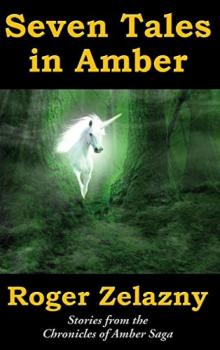 Seven Tales in Amber
Seven Tales in Amber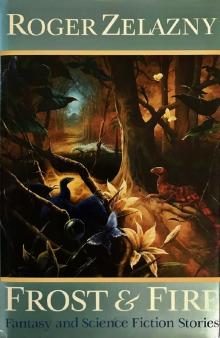 Frost and Fire
Frost and Fire Doorways in the Sand
Doorways in the Sand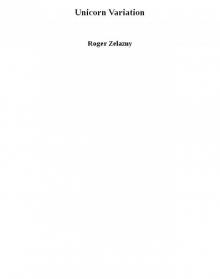 Unicorn Variation
Unicorn Variation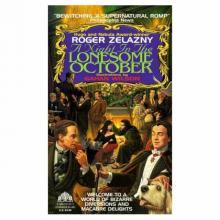 A Night in the Lonesome October
A Night in the Lonesome October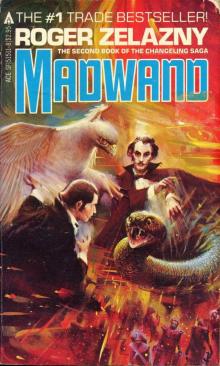 Madwand
Madwand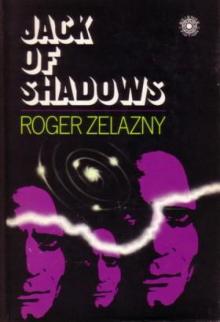 Jack Of Shadows
Jack Of Shadows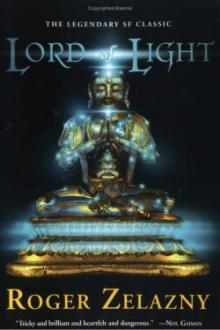 Lord of Light
Lord of Light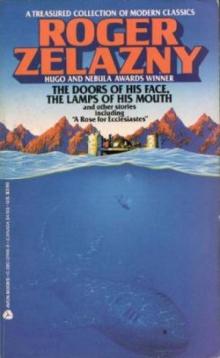 The Doors of His Face, The Lamps of His Mouth and Other Stories
The Doors of His Face, The Lamps of His Mouth and Other Stories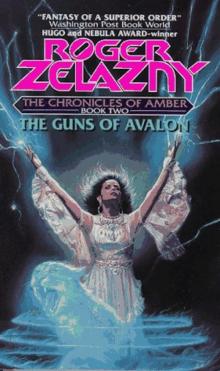 Guns Of Avalon tcoa-2
Guns Of Avalon tcoa-2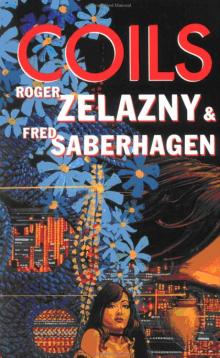 Coils
Coils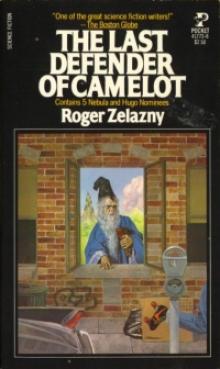 The Last Defender Of Camelot
The Last Defender Of Camelot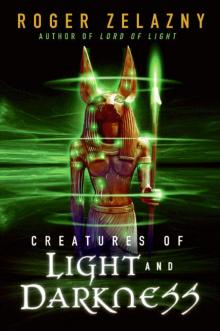 Creatures of Light and Darkness
Creatures of Light and Darkness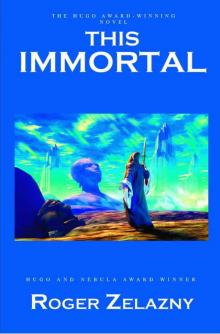 This Immortal
This Immortal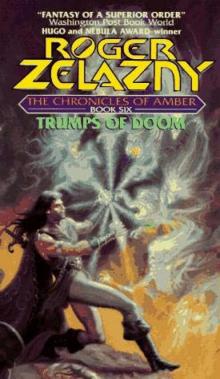 Trumps of doom tcoa-6
Trumps of doom tcoa-6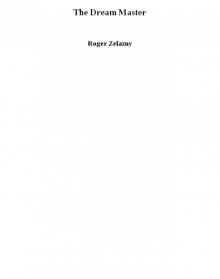 The Dream Master
The Dream Master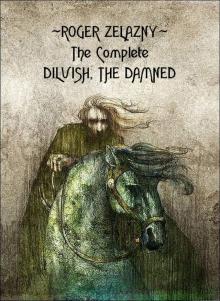 The Complete Dilvish, The Damned
The Complete Dilvish, The Damned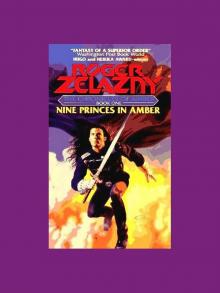 Nine Princes in Amber
Nine Princes in Amber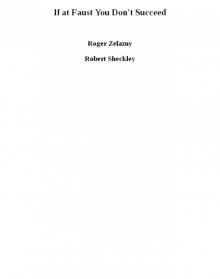 If at Faust You Don't Succeed
If at Faust You Don't Succeed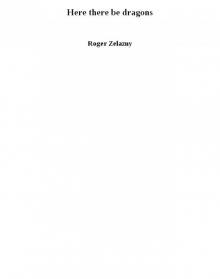 Here there be dragons
Here there be dragons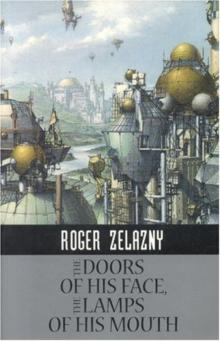 The Doors Of His Face, The Lamps Of His Mouth
The Doors Of His Face, The Lamps Of His Mouth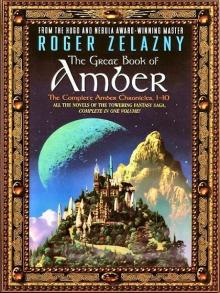 The Great Book of Amber - Chronicles 1-10
The Great Book of Amber - Chronicles 1-10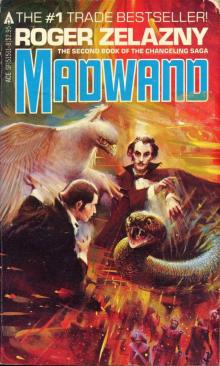 Madwand (Illustrated)
Madwand (Illustrated)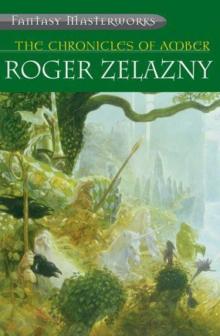 The Chronicles of Amber
The Chronicles of Amber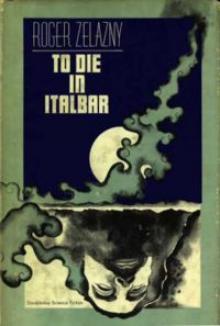 To Die In Italbar
To Die In Italbar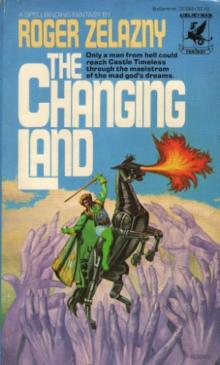 The Changing Land
The Changing Land The Furies
The Furies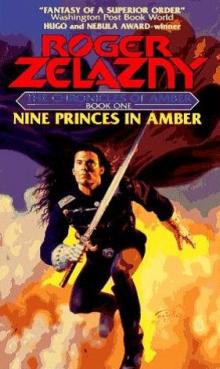 Nine Princes In Amber tcoa-1
Nine Princes In Amber tcoa-1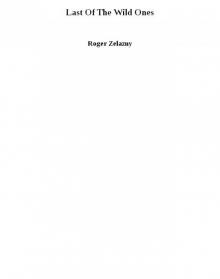 Last Of The Wild Ones
Last Of The Wild Ones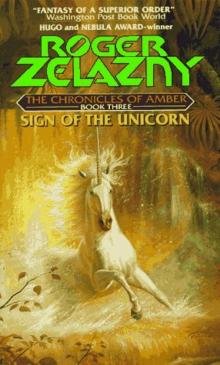 Sign of the Unicorn tcoa-3
Sign of the Unicorn tcoa-3 My Name is Legion
My Name is Legion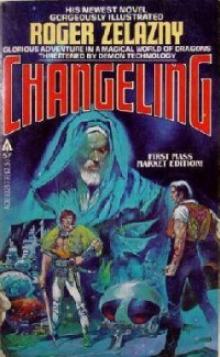 Wizard World 1: Changeling
Wizard World 1: Changeling Changeling
Changeling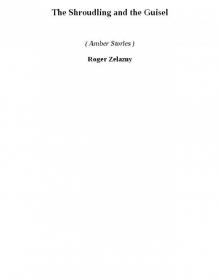 The Shroudling and the Guisel (amber stories)
The Shroudling and the Guisel (amber stories)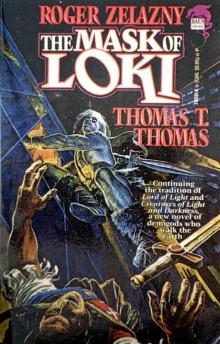 The Mask of Loki
The Mask of Loki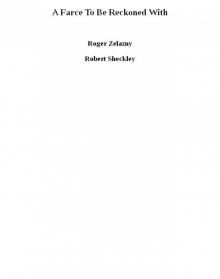 A Farce To Be Reckoned With
A Farce To Be Reckoned With Roadmarks
Roadmarks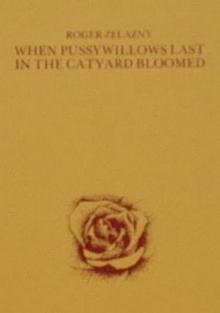 When Pussywillows Last in the Catyard Bloomed (rtf)
When Pussywillows Last in the Catyard Bloomed (rtf)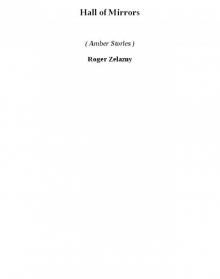 Hall of Mirrors (amber stories)
Hall of Mirrors (amber stories)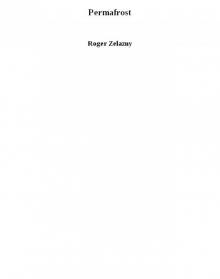 Permafrost
Permafrost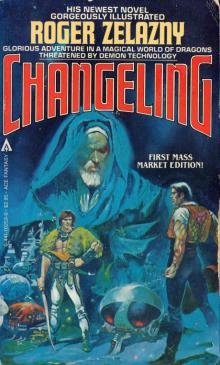 Changeling (Illustrated)
Changeling (Illustrated)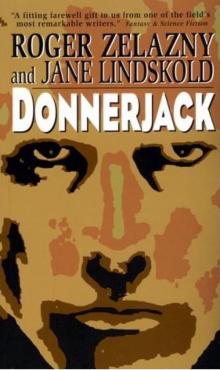 Donnerjack
Donnerjack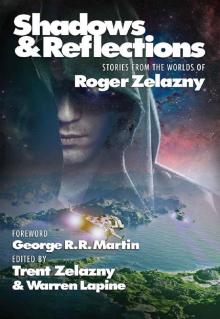 Shadows & Reflections: A Roger Zelazny Tribute Anthology
Shadows & Reflections: A Roger Zelazny Tribute Anthology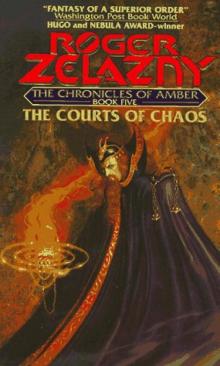 The Courts Of Chaos tcoa-5
The Courts Of Chaos tcoa-5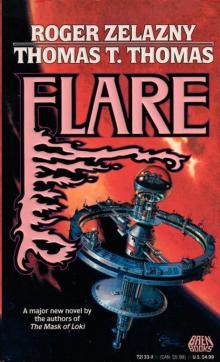 Flare
Flare Doorsways in the Sand
Doorsways in the Sand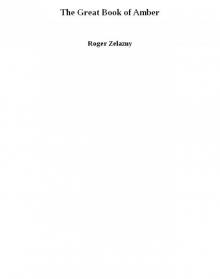 The Great Book of Amber
The Great Book of Amber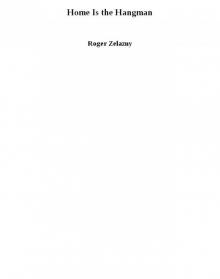 Home Is the Hangman
Home Is the Hangman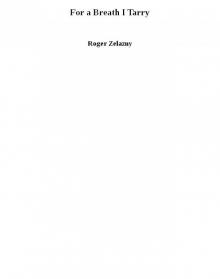 For a Breath I Tarry
For a Breath I Tarry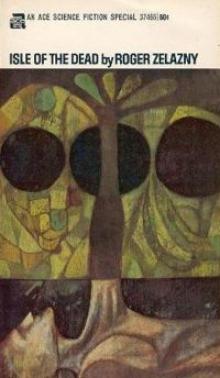 Isle Of The Dead
Isle Of The Dead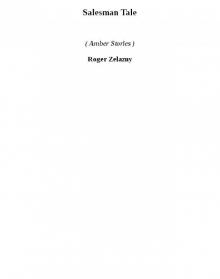 Salesman Tale (amber stories)
Salesman Tale (amber stories)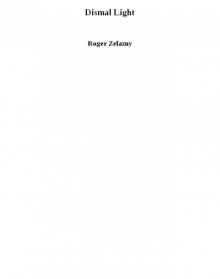 Dismal Light
Dismal Light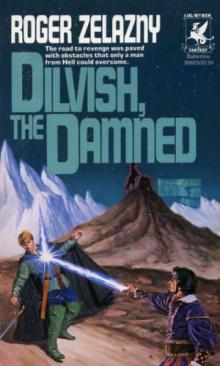 Dilvish, The Damned
Dilvish, The Damned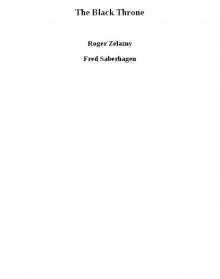 The Black Throne
The Black Throne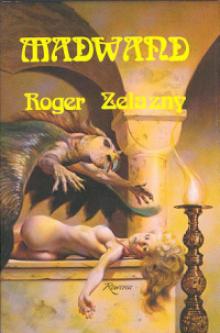 Wizard World 2: Madwand
Wizard World 2: Madwand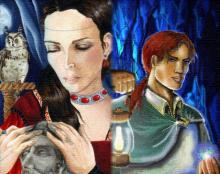 The Salesman's Tale
The Salesman's Tale